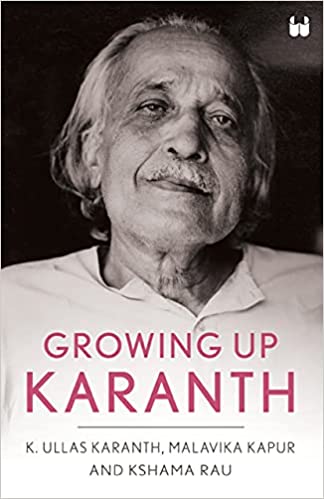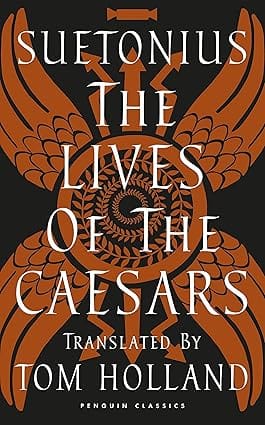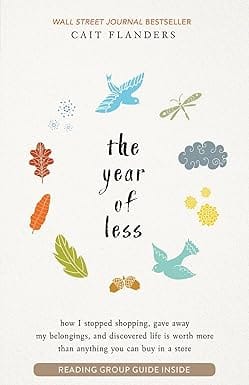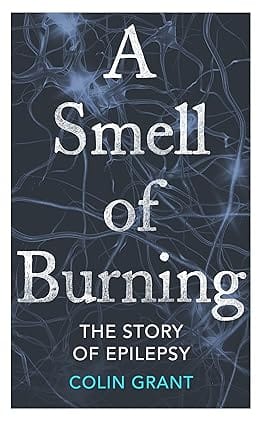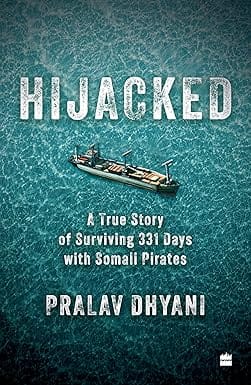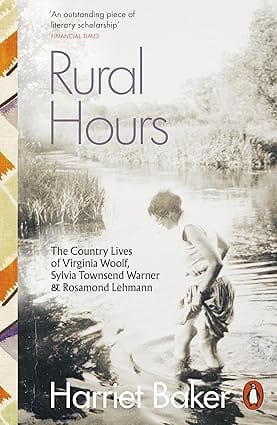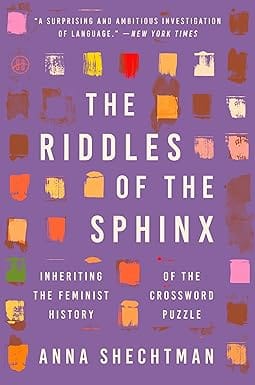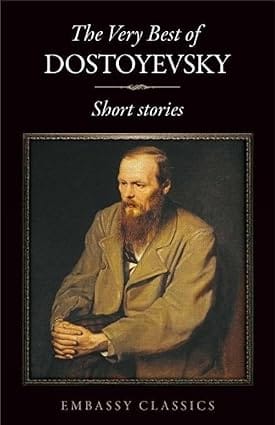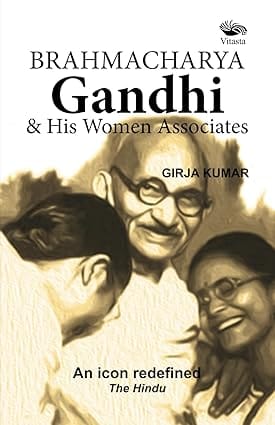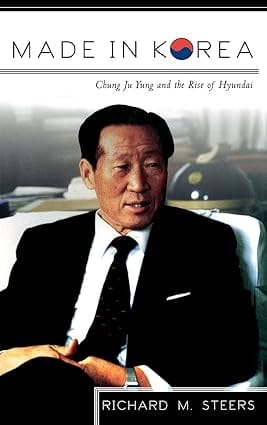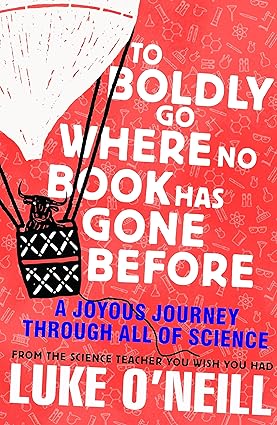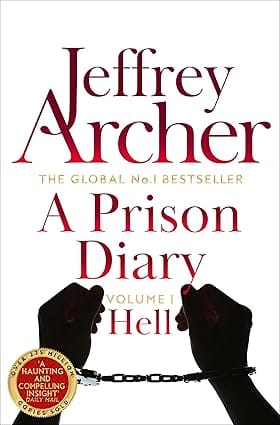-
Contemporary Fiction
- Contemporary Fiction
-
Children
- Children
-
Comics & Graphic Novels
- Comics & Graphic Novels
-
Non-Fiction
- Non-Fiction
-
Fiction
- Fiction
Karanth, Kuvempu, Bendre—the trinity of modern Kannada literature; the pride of Kannadigas; … It was Shivarama Karanth who took the culture of Karnataka beyond the shores of India with his dance and music. After Rabindranath Tagore, no one had mastered as many art forms as Shivarama Karanth.
-From the Foreword by Dr. Chiranjiv Singh, former Indian ambassador to UNESCO
Kota Shivarama Karanth was the ultimate Renaissance Man. A giant of world literature, he produced dozens of novels, plays, children’s works, autobiographies, popular science books, translations and much else. In 1977, he was awarded the Bharatiya Jnanpith Award for the novel Mookajjiya Kanasugalu. But Karanth was more than a writer. He also dabbled in journalism and movie-making, ran a publishing house, and campaigned for environmental and political causes. He was instrumental in transforming the ancient dance-drama form of Yakshagana for a modern audience.
While a great deal has been written about the man and his genius, there is little material about the intimate details of his life. Through much of his creative career, for instance, Karanth was unflinchingly supported by his wife, Leela. The Karanths had four children. The eldest, Harsha, died in 1961. The other three, Malavika, Ullas and Kshama, came together to present this uniquely personal account of what it was like to be the children of a creative genius. Growing Up Karanth documents their ‘rare privilege’, while also detailing the world of Shivarama Karanth through their eyes.
Multi-layered and nuanced, critical and affectionate, and filled with revelations that open up new facets of their father’s life, Malavika, Ullas and Kshama reveal Karanth and his times like no one else can.
Review
To have met Shivarama Karanth was to know one was in the presence of greatness. To learn about his astonishing range of interests, and to read his writings (even in translation), was to recognise that only Rabindranath Tagore ranked alongside him in the scale of his achievement. And yet, as someone who met Karanth and venerates him for his work, I have longed to know more about the human being as distinct from the Renaissance Man. My longings have now been satisfied by this wonderful book, written by Karanth’s three children, each a distinguished professional.
Growing up Karanth is at once a biography of a remarkable couple (the sections on Leela Karanth are particularly moving) and a wider cultural history of modern South India. The book is rich in insight and anecdote, as well as unflinchingly honest, as in the descriptions of their mother’s depression and of their father’s bouts of anger. Growing up Karanth is made more special still through its tender and empathetic foreword, written by that other jewel of modern Karnataka, Chiranjiv Singh.
Ramachandra Guha
Here are personal reflections on the great Shivarama Karanth by his three children. Chomana Dudi, Bettada Jeeva, Marali Mannige are a few of the masterpieces of Shivarama Karanth. The legacy of Shivaram Karanth has been woven together by the authors, and personal stories and anecdotes artistically put together. I really enjoyed reading the book and longed for those astonishing times to return.
C.N.R. RAO
Growing up Karanth is an affectionate, honest and objective biography of Karnataka’s first citizen of literature, by his highly accomplished children. It brings out vividly Sri Shivarama Karanth’s multifarious personality—a naughty and curious child among children; a glittering savant among the cognoscenti; and a dynamic and energetic iconoclast standing tall, amidst the ‘wimpy’ and ‘invertebrate’ environment of our generation. Reading this unputdownable book brought back vivid memories of my own two-hour meeting with Shivarama Karanth at Kota in 1995. It is a must-read for every English-literate Indian.
N. R. Narayana Murthy
In Growing Up Karanth, Ullas Karanth, Malavika Kapur, and Kshama Rau tell the fascinating story of their father, Shivarama Karanth, a luminary of the 20th-century Kannada literary, artistic, scientific, and political worlds. A household name in Karnataka, Karanth’s awe-inspiring list of achievements has remained shamefully neglected outside the state. This book will go a long way towards reviving his well-deserved reputation as an inspirational polymath of India.
Shashi Tharoor
Even in what was an amazing era of great writers in Kannada literature, Shivarama Karanth was a giant. His novels are still read and loved. However, for us, the children of the Kannada playwright ‘Shriranga’, he was also the ‘Photo-Mama’, who clicked many excellent pictures of us. I had to read his Marali Mannige to know him as a novelist. And become a writer myself to know the great curiosity readers have about a writer’s life. This book, co-authored by Karanth’s three children, gives the readers glimpses of Karanth as a family man and as a father.
Shashi Deshpande
About the Author
Kota Ullas Karanth was originally trained as an engineer, but pursued his passion for wildlife biology, getting his Master’s degree at the University of Florida, USA (1988), and Doctorate from Mangalore University (1993). Focusing on tiger ecology, Karanth has published over 150 scientific articles, 8 books in English and 4 books in Kannada. He has been recognised by the Fellowship of the Indian Academy of Sciences, and been awarded with the Presidential honour Padmashri and J. Paul Getty award from the World Wildlife Fund, USA. He has academic affiliations at the University of Florida, USA and the Tata Institute of Fundamental Research –NCBS, Bengaluru.
Malavika Kapur is a Visiting Professor at the National Institute of Advanced Studies (NIAS) Bengaluru, after retiring as head of Clinical Psychology department at the National Institute of Mental Health and Neurosciences I (NIMHANS). Kapur has published 20 books and over 100 articles and received the Fellowship of the Indian Association of Clinical Psychologists, Indian Association of Child & Adolescent Mental Health, British psychological Society, and, Lifetime Achievement awards from the National Academy of Psychology.
Kshama Rau developed a passion for performing arts from her father and became an accomplished Odissi dancer and a dance teacher. After graduating in chemistry, she trained in Odissi at the Kalakshetra in Chennai and later received advanced training under Guru Kelucharan Mahapatra. She directs her dance school, Nrithya Shilpa at Bengaluru. Kshama Rau is a member of the advisory committee of established by the Government of Karnataka to oversee the restoration of Shivarama Karanth’s Balavana, which is being developed as a life-style museum in his memory.
- Home
- Non-Fiction
- Biographies
- Growing Up Karanth
Growing Up Karanth
SIZE GUIDE
- ISBN: 9789391234256
- Author: K Ullas Karanth
- Publisher: Westland Non-fiction
- Pages: 242
- Format: Hardback
Book Description
Karanth, Kuvempu, Bendre—the trinity of modern Kannada literature; the pride of Kannadigas; … It was Shivarama Karanth who took the culture of Karnataka beyond the shores of India with his dance and music. After Rabindranath Tagore, no one had mastered as many art forms as Shivarama Karanth.
-From the Foreword by Dr. Chiranjiv Singh, former Indian ambassador to UNESCO
Kota Shivarama Karanth was the ultimate Renaissance Man. A giant of world literature, he produced dozens of novels, plays, children’s works, autobiographies, popular science books, translations and much else. In 1977, he was awarded the Bharatiya Jnanpith Award for the novel Mookajjiya Kanasugalu. But Karanth was more than a writer. He also dabbled in journalism and movie-making, ran a publishing house, and campaigned for environmental and political causes. He was instrumental in transforming the ancient dance-drama form of Yakshagana for a modern audience.
While a great deal has been written about the man and his genius, there is little material about the intimate details of his life. Through much of his creative career, for instance, Karanth was unflinchingly supported by his wife, Leela. The Karanths had four children. The eldest, Harsha, died in 1961. The other three, Malavika, Ullas and Kshama, came together to present this uniquely personal account of what it was like to be the children of a creative genius. Growing Up Karanth documents their ‘rare privilege’, while also detailing the world of Shivarama Karanth through their eyes.
Multi-layered and nuanced, critical and affectionate, and filled with revelations that open up new facets of their father’s life, Malavika, Ullas and Kshama reveal Karanth and his times like no one else can.
Review
To have met Shivarama Karanth was to know one was in the presence of greatness. To learn about his astonishing range of interests, and to read his writings (even in translation), was to recognise that only Rabindranath Tagore ranked alongside him in the scale of his achievement. And yet, as someone who met Karanth and venerates him for his work, I have longed to know more about the human being as distinct from the Renaissance Man. My longings have now been satisfied by this wonderful book, written by Karanth’s three children, each a distinguished professional.
Growing up Karanth is at once a biography of a remarkable couple (the sections on Leela Karanth are particularly moving) and a wider cultural history of modern South India. The book is rich in insight and anecdote, as well as unflinchingly honest, as in the descriptions of their mother’s depression and of their father’s bouts of anger. Growing up Karanth is made more special still through its tender and empathetic foreword, written by that other jewel of modern Karnataka, Chiranjiv Singh.
Ramachandra Guha
Here are personal reflections on the great Shivarama Karanth by his three children. Chomana Dudi, Bettada Jeeva, Marali Mannige are a few of the masterpieces of Shivarama Karanth. The legacy of Shivaram Karanth has been woven together by the authors, and personal stories and anecdotes artistically put together. I really enjoyed reading the book and longed for those astonishing times to return.
C.N.R. RAO
Growing up Karanth is an affectionate, honest and objective biography of Karnataka’s first citizen of literature, by his highly accomplished children. It brings out vividly Sri Shivarama Karanth’s multifarious personality—a naughty and curious child among children; a glittering savant among the cognoscenti; and a dynamic and energetic iconoclast standing tall, amidst the ‘wimpy’ and ‘invertebrate’ environment of our generation. Reading this unputdownable book brought back vivid memories of my own two-hour meeting with Shivarama Karanth at Kota in 1995. It is a must-read for every English-literate Indian.
N. R. Narayana Murthy
In Growing Up Karanth, Ullas Karanth, Malavika Kapur, and Kshama Rau tell the fascinating story of their father, Shivarama Karanth, a luminary of the 20th-century Kannada literary, artistic, scientific, and political worlds. A household name in Karnataka, Karanth’s awe-inspiring list of achievements has remained shamefully neglected outside the state. This book will go a long way towards reviving his well-deserved reputation as an inspirational polymath of India.
Shashi Tharoor
Even in what was an amazing era of great writers in Kannada literature, Shivarama Karanth was a giant. His novels are still read and loved. However, for us, the children of the Kannada playwright ‘Shriranga’, he was also the ‘Photo-Mama’, who clicked many excellent pictures of us. I had to read his Marali Mannige to know him as a novelist. And become a writer myself to know the great curiosity readers have about a writer’s life. This book, co-authored by Karanth’s three children, gives the readers glimpses of Karanth as a family man and as a father.
Shashi Deshpande
About the Author
Kota Ullas Karanth was originally trained as an engineer, but pursued his passion for wildlife biology, getting his Master’s degree at the University of Florida, USA (1988), and Doctorate from Mangalore University (1993). Focusing on tiger ecology, Karanth has published over 150 scientific articles, 8 books in English and 4 books in Kannada. He has been recognised by the Fellowship of the Indian Academy of Sciences, and been awarded with the Presidential honour Padmashri and J. Paul Getty award from the World Wildlife Fund, USA. He has academic affiliations at the University of Florida, USA and the Tata Institute of Fundamental Research –NCBS, Bengaluru.
Malavika Kapur is a Visiting Professor at the National Institute of Advanced Studies (NIAS) Bengaluru, after retiring as head of Clinical Psychology department at the National Institute of Mental Health and Neurosciences I (NIMHANS). Kapur has published 20 books and over 100 articles and received the Fellowship of the Indian Association of Clinical Psychologists, Indian Association of Child & Adolescent Mental Health, British psychological Society, and, Lifetime Achievement awards from the National Academy of Psychology.
Kshama Rau developed a passion for performing arts from her father and became an accomplished Odissi dancer and a dance teacher. After graduating in chemistry, she trained in Odissi at the Kalakshetra in Chennai and later received advanced training under Guru Kelucharan Mahapatra. She directs her dance school, Nrithya Shilpa at Bengaluru. Kshama Rau is a member of the advisory committee of established by the Government of Karnataka to oversee the restoration of Shivarama Karanth’s Balavana, which is being developed as a life-style museum in his memory.
User reviews
NEWSLETTER
Subscribe to get Email Updates!
Thanks for subscribing.
Your response has been recorded.

India's Iconic & Independent Book Store offering a vast selection of books across a variety of genres Since 1978.
"We Believe In The Power of Books" Our mission is to make books accessible to everyone, and to cultivate a culture of reading and learning. We strive to provide a wide range of books, from classic literature, sci-fi and fantasy, to graphic novels, biographies and self-help books, so that everyone can find something to read.
Whether you’re looking for your next great read, a gift for someone special, or just browsing, Midland is here to make your book-buying experience easy and enjoyable.
We are shipping pan India and across the world.
For Bulk Order / Corporate Gifting
 +91 9818282497 |
+91 9818282497 |  [email protected]
[email protected]
Click To Know More
INFORMATION
POLICIES
ACCOUNT
QUICK LINKS
ADDRESS
Shop No.20, Aurobindo Palace Market, Near Church, New Delhi

